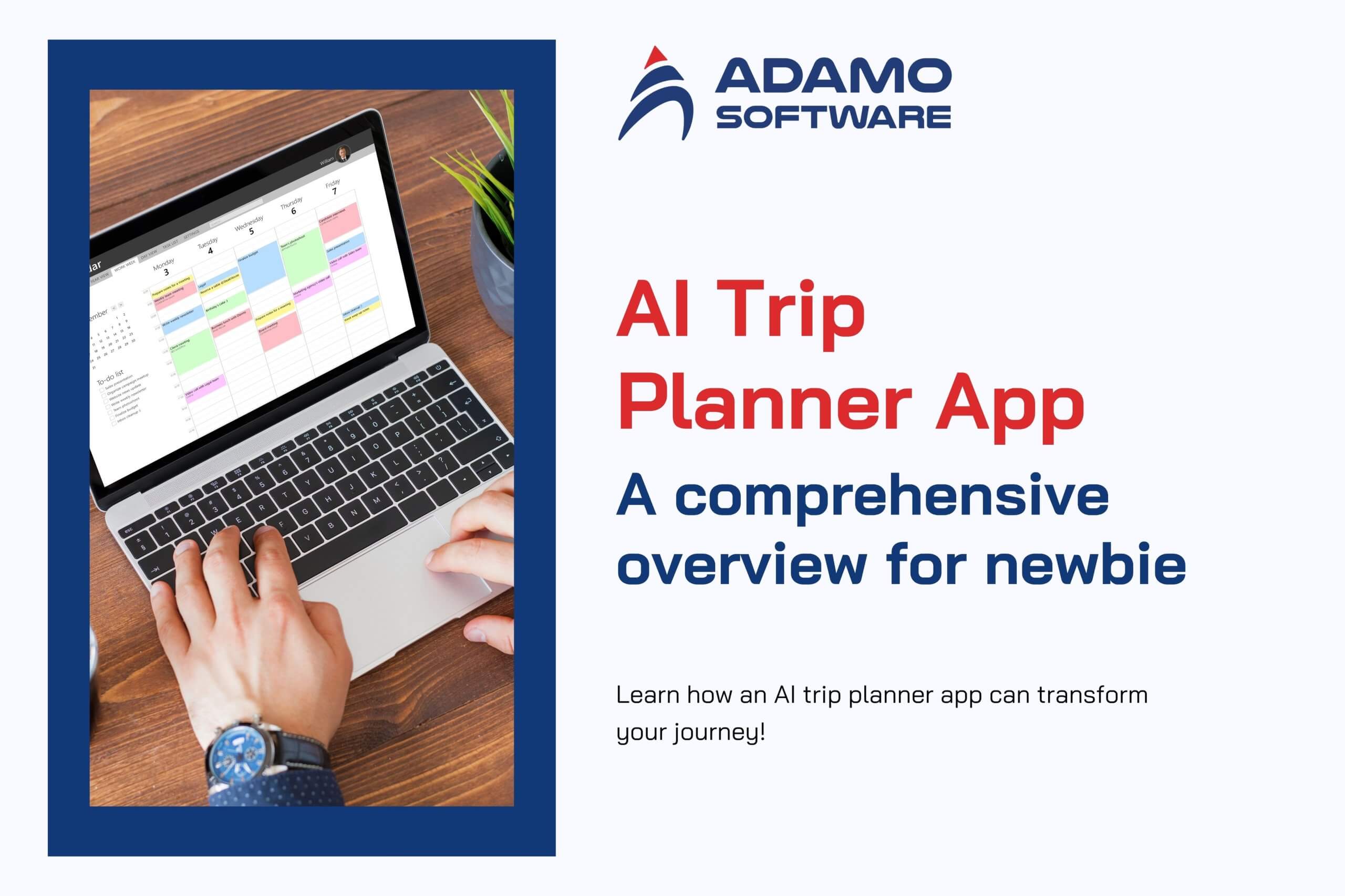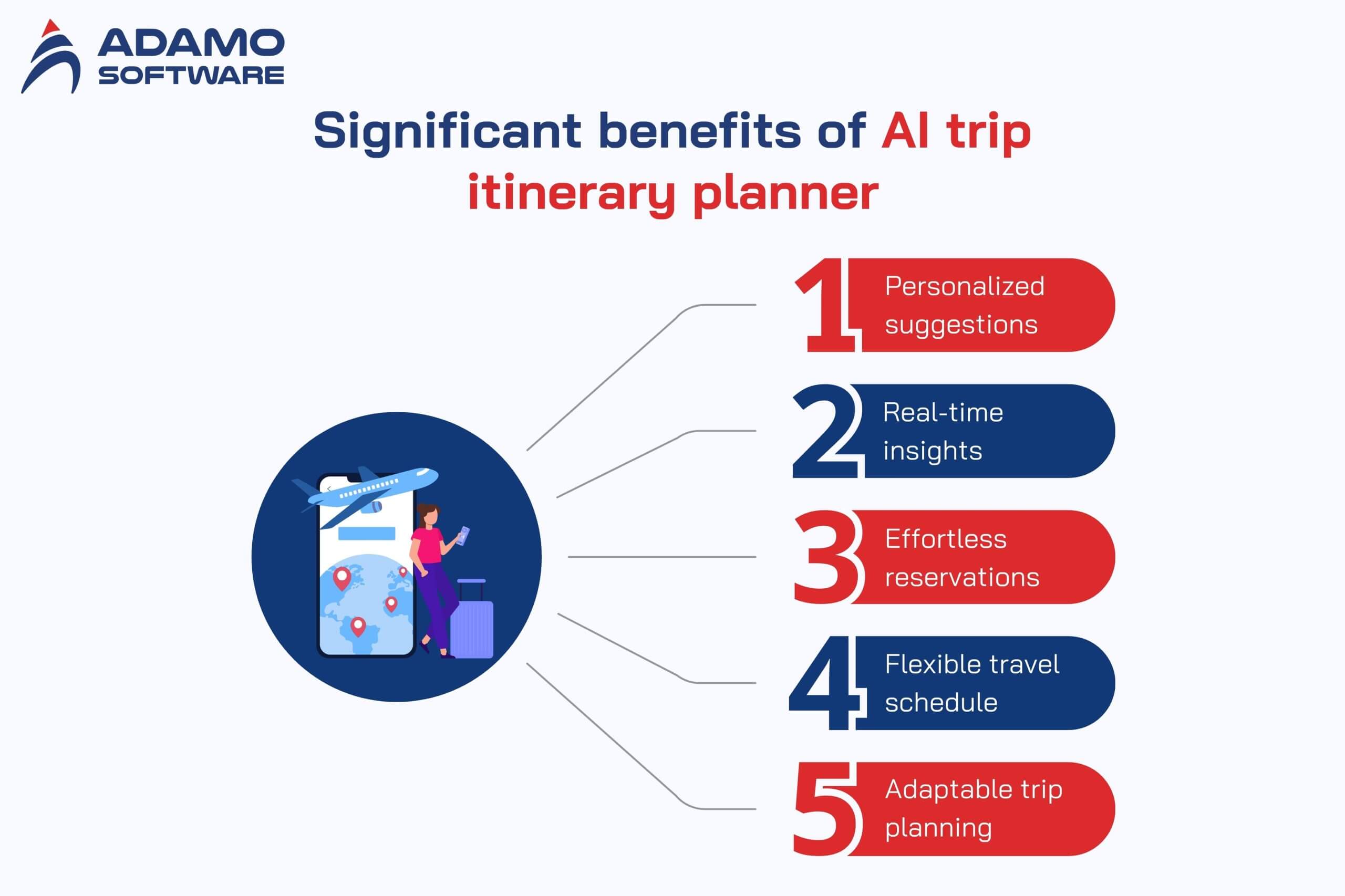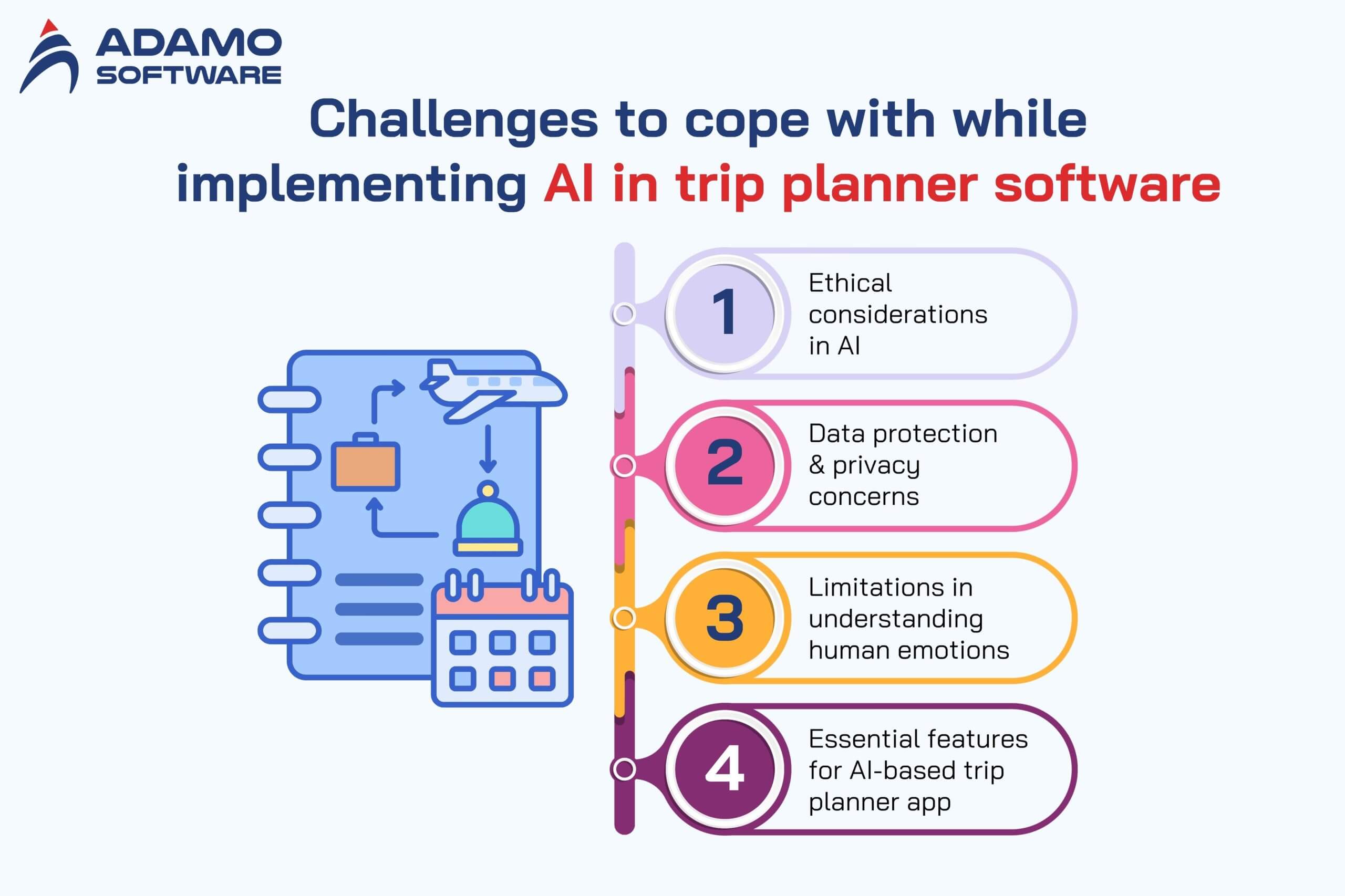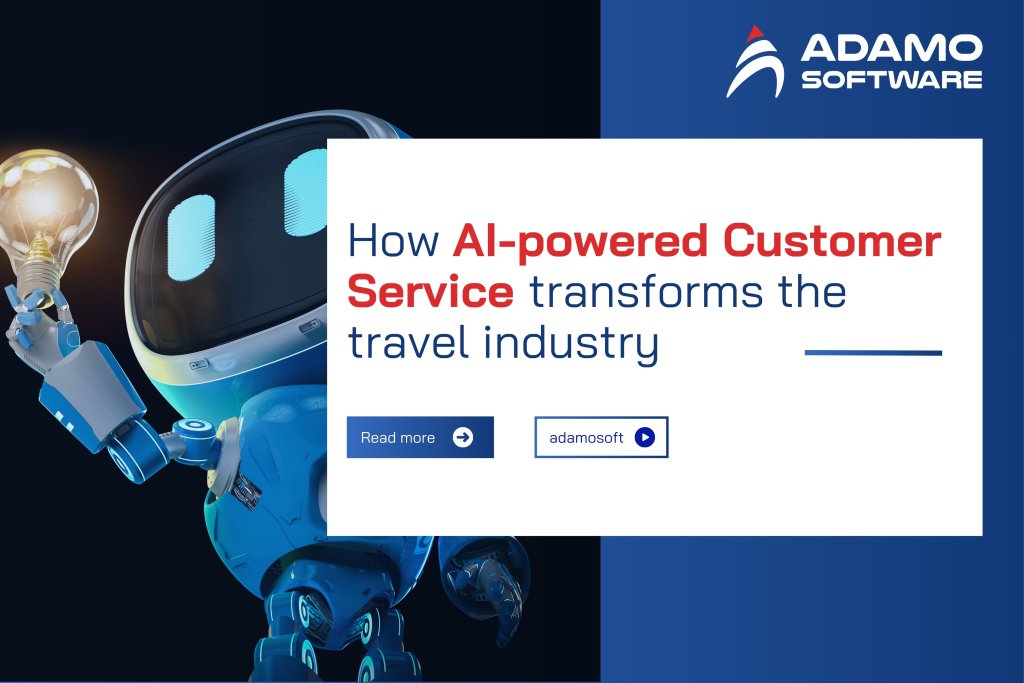AI Trip Planner App: A comprehensive overview for newbie

New to travel planning? Learn how an AI trip planner app can transform your journey with personalized itineraries and real-time updates in this guide!
In today’s fast-paced world, planning a trip for someone new to travel can feel overwhelming. Luckily, an AI trip planner app currently makes a big difference in how you plan your trips.
Using top-of-the-line tech, these apps provide custom itineraries, up-to-the-moment reports, and intelligent tips centered around your preferences. Whether you’re craving a peaceful beach holiday or an exciting mountain trek, these tools can simplify planning and enhance your experience.
This guide to the benefits and challenges of using an AI trip planner, as well as costs to develop one, will be perfect for beginners. Let’s see how this magical tool can help you elevate your travel planning process and have unforgettable trips!
I. Why should we build an AI Trip Planner App?
So, what’s so special about this AI trip planner app that you should build one for your company? Having an AI trip planner app is crucial for a travel company that wants to offer superior value and be ahead of its competitors.
AI trip planner apps differ from traditional travel apps, which rely on the need for users to do manual searches and compare options. Specifically, these applications use more advanced algorithms to analyze user wants and preferences — such as finances, interests, and previous travel habits. Such results in personalized itineraries that positively affect customer satisfaction while contributing to establishing loyalty to the organization.
App’s ability to recommend the best times to visit, suggest suitable activities, and change the plans at the last moment makes it hassle-free. The features mentioned help delight users and serve as a remedy to proactively change and protect the company’s reputation.
From the business point-of-view, the AI trip planner app increases booking and earnings by 33% and 30%, respectively, through personalized recommendations. Another point is that with dynamic pricing and actionable insights from AI analytics on sales, manufacturers can make better decisions and make more profit. Investing in an AI trip planner app is investing in the bright future for companies looking to innovate and grow.
II. Significant benefits of AI trip itinerary planner
Every industry is changing with AI. There are different kinds of benefits AI brings to the travel industry. In this section, we’ll look at the significant benefits of an AI trip planner app.

1. Personalized suggestions
AI trip planner app can help you find personalized travel recommendations suited to individual preferences. The app takes user data such as past trips, interests, and particular likes or dislikes into account. It then crafts tailored itineraries that best match the traveler’s style.
For example, suppose a user likes outdoor activities and local cuisine. In that case, the app can give some recommendations, such as hiking trails. It can also suggest local markets if the user’s interests are in outdoor activity and local cuisine.
Not just for comfortability, this level of customization saves the user time by narrowing down options to those most applicable to them. As users engage with the app, it learns and adjusts its suggestions based on feedback and new preferences. This means that each recommendation becomes more accurate over time.
Overall, this personal approach makes travel planning a daunting task into a fun journey of discovery.
2. Real-time insights
The real-time insights that an AI trip planner app provides are one of its standout features. This includes updates about flight statuses, local events, hotel availability, and weather conditions. Immediate access to such information can significantly improve planning for travelers.
For instance, if a user is near a festival during their stay, the app can notify them about the event. It could also make recommendations so they can at least attend the event.
Travelers can make plans on the go with real-time weather updates. This allows them to bring an umbrella for unexpected rain or change outdoor plans due to a heat advisory. This information lets users make this informed decision quickly to change their itinerary on the fly, making travel smoother and more enjoyable.
3. Effortless reservations
An AI trip planner app has integration capabilities that simplify booking flights, accommodations, rental cars, and activities. The app allows users to make reservations all within its interface by connecting with different booking platforms and APIs. This way, they don’t have to hop around from one site to another.
Not only that, but it also saves time and lowers the risk of errors when booking. Additionally, the app can compare prices for the same products across additional platforms in real-time. This helps ensure that the people who use it can access the best prices available.
Let’s take a user seeking to book a hotel room near their destination as an example. In such a situation, the app will show choices from assorted suppliers and mark ongoing promotions or discounts. This hassle-free booking solution makes travel planning simple and makes everything available simultaneously, making the entire experience much more enjoyable.
4. Flexible travel schedule
Planning travel is no easy task, during which flexibility is key. An AI trip planner app can help adapt the itinerary to a user’s preferences, budget constraints, and time restraints. All these factors are analyzed using advanced algorithms by the app, which suggests adjustments to optimize trip efficiency.
Suppose the traveler has limited time in a city and wants to see multiple attractions. The app can produce an optimized route that minimizes travel time between locations while still hitting all the stops.
Furthermore, if a flight arrives late, the user does not need to do anything manually. The application can seamlessly change the itinerary to fit new circumstances without lengthy adjustments. Hence, travel becomes more convenient, allowing travelers to fully enjoy their journeys without feeling rushed or overwhelmed.
5. Adaptable trip planning
Due to the demand for flexibility in travel itineraries, many airlines and travel companies have adjusted their policies. What we see in AI trip planner apps is similar. These apps are essential modern exploring tools, especially as seven out of ten travelers want to have greater flexibility in their plans. They offer users the ability to change bookings without paying hefty change fees or penalties, an option not previously available in traditional travel planning.
For example, suppose a traveler decides to stay at a particular destination longer. This may happen due to unforeseen circumstances such as work commitments or personal reasons. In that case, the AI trip planner application can make these changes easily.
These apps make this level of adaptability possible not just to enhance customer satisfaction. They also improve the likelihood that more travelers will finish planning and confirm their plans.
III. Challenges to cope with while implementing AI in trip planner software
AI’s implementation has many benefits, but it also has a few challenges we cannot ignore. We’ll dive into this topic in greater detail in this section.

1. Ethical considerations in AI
The ethical implications of algorithmic decision-making are one of the biggest challenges of an AI trip planner app. Data used to train AI systems is limited, and therefore, can contain certain biases, which might be accidentally recommended to users.
If the ‘training data’ has some cultural or socioeconomic bias, the resulting itineraries could privilege specified communities or locations. This could lead to the neglect of other demographics or places. Unfair treatment of users, along with ethical concerns arising from using AI in travel planning, can be the consequences of this.
This can be remedied by ensuring that the developers use training data that speaks to a diverse and representative pool of users. Additionally, developers should continuously monitor algorithms for bias.
When we address these ethical considerations, the developers of an AI trip planner app can create an app that fosters trust and inclusion. This approach guarantees fair and equitable travel suggestions for all users.
2. Data protection and privacy concerns
Data security and user privacy are other challenges for AI trip planner apps. These applications require analyzing large amounts of personal information, making them more prone to data or security breaches.
An application owner must protect sensitive customer information first. Robust encryption protocols and secure data storage solutions ensure that user data is always safe. No one can access it beyond the data center premises, and tightly controlled access rights prevent any tampering. This way, users can trust that their information is well-protected.
Moreover, to build trust with your customers, you also need transparency in collecting, using, and storing user data. Considering these data security concerns, developers can enhance user trust and ensure compliance with privacy regulations for the AI trip planner app.
3. Limitations in understanding human emotions
Travel is a personal experience that can involve anywhere between excitement and anxiety. But despite that, an AI trip planner app can’t understand these emotional nuances.
For example, first-time international travelers may be happy and scared about their journey. AI tools might be good at crunching preferences against data and providing itineraries based on data-driven insights. Still, they cannot empathize or fully grasp the emotional context of a user’s travel plans.
If this gap is not filled, it can impede the app’s ability to offer truly personalized experiences that can hit on an emotional level. Developers can try to bridge this divide by providing features that allow people to interact with the app. They can also offer better ways of receiving user feedback.
4. Essential features for an AI-based trip planner app
Any application is only effective if it meets user needs without interference. That being said, app development professionals involved in feature development for an AI trip planner app will greatly help when building the application. Their expertise is crucial for creating an effective AI trip planner.
These experts can help you navigate through each step to create an easy-to-understand user interface for travel planning. The interface will ensure seamless functionality, including personalized recommendations, live updates, and secure booking features.
Ultimately, the success of an AI trip planner app relies on initial user experience and incorporating feedback into product development.
IV. Cost for developing an AI-powered trip planner app
The cost of developing an AI trip planner app depends on its design, features, and overall complexity. Below is a general overview categorized by different levels of app complexity:
Basic app
You need to spend around $30,000 to $50,000 for a basic AI trip planner app. In this case, this type of app should have essential features like itinerary management and real-time updates. It should also include user profiles and integration with mainstay travel services like flight and hotel booking engines.
It lacks advanced AI capabilities like predictive analytics or machine learning recommendations. Still, it’s not bad at what it does, simplifying users’ travel planning process.
Medium-complexity app
The estimated cost is between $50,000 and $100,000 when switching to a medium-complexity AI trip planner app. These apps address advanced features such as personalized itineraries, AI-powered recommendations, dynamic pricing, and real-time updates on flight statuses and weather updates.
Also, medium complexity apps come jam-packed with robust integration with third-party services, including Google Maps, hotel booking APIs, etc. The user interfaces themselves are also better geared towards improving the experience for the end user, increasing the app’s engagement and interactivity.
High-end app
If you’re looking for a high-end AI trip planner app, the estimated cost begins at $100,000 and can rise as high as $150,000. They use cutting-edge AI for chatbots, such as machine learning and natural language processing (NLP).
High-end applications could use sentiment analysis for reviews and predictive analytics regarding travel trends. It typically offers voice-activated search and smart itinerary management, adjusting in real-time to changes in travel plans or user preferences.
Additionally, these applications often have been fully tuned for iOS, Android, and Web platforms to provide seamless user experience across all platforms.
You can explore the development cost for a Trip Planner App here.
V. Other factors affecting AI trip planner app budget
1. Features and functionality
All the features and functionality of the AI trip planner app are important components of the overall budget. AI-driven recommendations, real-time updates, and voice-activated search are all designed to improve user experience. However, these features come at the cost of added programming complexity and integration.
All these features require specific expertise and, as a result, require additional development time, which may increase costs. You should look carefully at which features should be included in your product for the sake of your target audience. Prioritize these features to effectively manage your budget while still creating a great product.
2. Design complexity
The other critical factor that impacts your AI trip planner app budget is the design complexity of your app. For custom designs that reflect your brand, along with detailed UI elements and engaging animations, a talented team of designers and developers is essential.
A visually appealing app not only attracts users but also improves usability. Nevertheless, the required time and resources to develop this aesthetic come at a much higher cost. The goal is to get functionality into the app and balance it with design, so it stays within budget but is user-friendly.
3. Platform choices
How you develop your AI trip planner app will determine the cost. If you develop native iOS, Android, and Web applications simultaneously, costs often increase because each platform requires separate codebases and specialized teams.
Conversely, using cross-platform frameworks like Flutter simplifies development by allowing a single codebase to operate on multiple platforms. This approach can save time and money yet brings you a robust application. But it’s important to remember to choose the right one when the need depends on your target audience.
4. Integration needs
Another factor that affects your cost is integrating various services into your AI trip planner app. Payment gateways, mapping APIs, booking engine, and other third-party services make your visitor’s experience simply amazing. Each integration takes time and planning and can increase the overall development cost.
At a very early stage of the planning process, it is important to identify which integrations are needed for the success of your app. This helps allocate enough resources and avoid unexpected expenses in the future.
5. On-going maintenance
Ongoing maintenance is the last important aspect of an AI trip planner app budget that should not be ignored. After launching, these updates are mandatory to correct bugs, improve performance, and guarantee compatibility with new OS versions or devices.
Depending on your development team or service provider, maintenance may or may not be included in your initial package. When budgeting for your app, you must incorporate these costs that continue to incur as they are important to long-term success and user satisfaction.
VI. Outsource the AI trip planner app at Adamo Software for success!

If you outsource your AI trip planner app development to Adamo Software, you will surely succeed. Our experienced team creates custom-made goods according to your business requirements. Using advanced AI, we can help increase the user experience and simplify travel planning.
Travelers can get personalized itineraries and real-time updates using our AI trip planner app. Additionally, data security is at the top of Adamo’s priorities — personal information is kept private. We also provide user-friendly interfaces enabling users to easily navigate and plan their trips.
You can stay on top of the travel market by teaming up with travel software development team from Adamo! Let us help you develop your AI trip planner app to take your travel services to the next level!
FAQs
1. How is AI transforming the travel experience?
The tools and features of AI have a big impact on travel. For example, AI generates chatbots, automated trip planners, and pre-made itineraries, all adapted to any budget. AI also provides all the details about your dream destination’s weather conditions, accommodation, and attractions. This technology makes trip planning much easier for travelers by helping them to organize their journeys better.
2. How can I use AI to plan my next trip?
Using AI to plan your upcoming trip becomes easier with an AI trip planner app. It helps create itineraries or collect important information about your next travel destination. There are various ways that AI can help with your travel planning, and the process becomes a lot shorter.
3. Is there still a need for AI travel app development in 2026?
Absolutely! If you want to expand your travel business in the competitive 2026, you should embrace AI. AI will be one of the main features to be integrated into travel in the coming year of 2026. But if you’re not convinced AI can add to growth, you might not view it as necessary.
4. How do AI-powered trip planner apps benefit businesses?
With their focus on personalization, automation, and optimization, AI-powered trip planner apps are highly profitable for businesses. With these apps, people in the travel industry can cut down on all the manual work, reduce the time taken, and help the industry grow. Thanks to the AI trip planner app, businesses can improve service offerings to deliver to customers.





